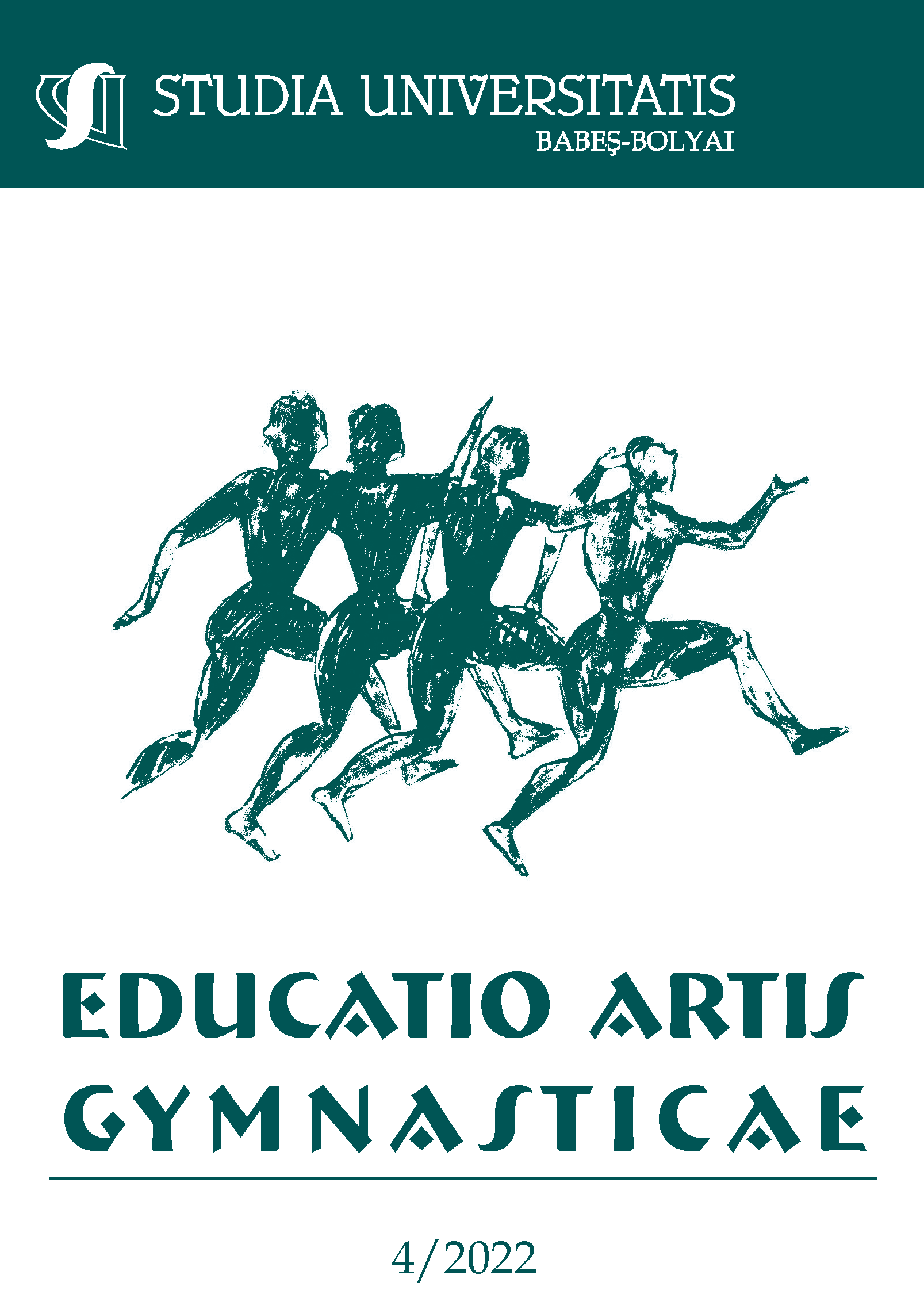ANALYTICAL PRESENTATION OF THE 2020 NATIONAL CORE CURRICULUM IN HUNGARY
DOI:
https://doi.org/10.24193/subbeag.67(4).37Keywords:
National Core Curriculum, Basic competencies, Learning areas, Physical education and health promotionAbstract
The Physical Education and Health Development learning area of the National Core Curriculum (NCC) 2020 and the framework curricula that form a coherent unit with it includes a set of goals and contents that meet the challenges of the 21st century. One of the prominent components of the 21st century image of man is that the individual is active, but at the same time, capable of reflective deliberation. A person of action is characterized by the right attitudes related to movement, a physically active lifestyle, realistic self-acceptance, autonomy combined with social responsibility, openness to innovative initiatives and the ability to apply reliable solutions. A physically and mentally healthy person experiences the state of health and a harmonious life as a value. The abilities and skills related to movement as a basic competence, as well as the motor abilities and skills that are mobilized according to the given situation, are the basis for the individual to become an active member of society, and are characterized by safety in movement throughout life. A significant positive of NCC 2020 is that, in addition to speaking, reading, writing, text comprehension, orientation to quantitative, spatial-visual and temporal conditions, movement is also found among the basic competencies. There are learning areas (subjects) in NCC 2020, in the following system: Hungarian language and literature (literature, Hungarian language); Mathematics (mathematics); History and civic knowledge (history, civic knowledge, country and people knowledge); Ethics/faith and morality; Natural science and geography (environmental knowledge, natural science, integrated natural science, biology, chemistry, physics, geography); Foreign language (first and second foreign language); Arts (singing and music, drama and theatre, visual culture, motion picture culture and media literacy); Technology (technique and design, digital culture); Physical education and health promotion (physical education); Community education (class head teacher’s lesson). The learning area of NCC 2020 Physical Education and Health promotion follows the following structure: first, the general principles and goals of the learning area and the physical education subject are formulated; after that, specific characteristics of the teaching of the subject can be found in chapters 1-4 and 5-8 and 9-12 projected by grade; the next point contains the main topics, also divided into four grades. In the NCC, certain characteristics of physical education learning and teaching are also presented by education stage. The educational process takes place along seven development areas: movement culture development; motor abilities development; development of motor skills – learning to move; games; contests, competitions; prevention, lifestyle; healthy physical development, health promotion. These development areas are closely aligned with the main topics of the subject, as well as with the learning outcomes (general requirements) set as overall goals and related to the development areas.
References
Content Regulators Matching the 2020 NCC (2020), https://www.oktatas.hu/kozneveles/kerettantervek/2020_nat. Downloaded: 02 October 2022.
Csépe, V. (2020). National Core Curriculum 2020. The purpose of the core and framework curriculum changes in the lower grades I. General principles and the desired results. Tanító, (58)3-4: 2-4.
Hamar, P. (2012). Physical Education in Hungarian Public Education after the Political Transition of the 1990s. Editura RISOPRINT, Cluj-Napoca. pp.149-155.
Hamar, P. (2020). Physical Education – Adapted Physical Education – Health Development. Tanító, 58(5-6): 10-12.
Hamar, P. (2022). Physical Education. Science – Planning – Education – Evaluation. ELTE Eötvös Kiadó, Budapest.
Hamar, P., Karsai, I., Prihoda, G., Csordás-Makszin, Á., Boros-Balint, J. (2017). Physical Education Teachers’ Views of Best Practice on Physical Education Teaching in Hungary in the Period of Introducing Daily Physical Education. PedActa,, 7(2): 1-10. p.
Hamar, P., Czirják, Gy., Kövesdi, O. (2020). Guidelines for teaching the subject of physical education based on the National Core Curriculum and framework curricula published in 2020. Curriculum and methodology guidebooks. Education 2030 Learning Sciences Research Group and Károly Eszterházy University, Eger. https://www.oktatas2030.hu/wp-content/uploads/2020/10/utmutato-a-testneveles-tantargy-tanitasahoz-.pdf. Download: 02 October 2022.
LXX of 2019. Act CXC of 2011 on National Public Education, on amending the law. Hungarian Gazette, 2019. 126: 4822-4840.
Downloads
Published
How to Cite
Issue
Section
License
Copyright (c) 2022 Studia Universitatis Babeș-Bolyai Educatio Artis Gymnasticae

This work is licensed under a Creative Commons Attribution-NonCommercial-NoDerivatives 4.0 International License.






